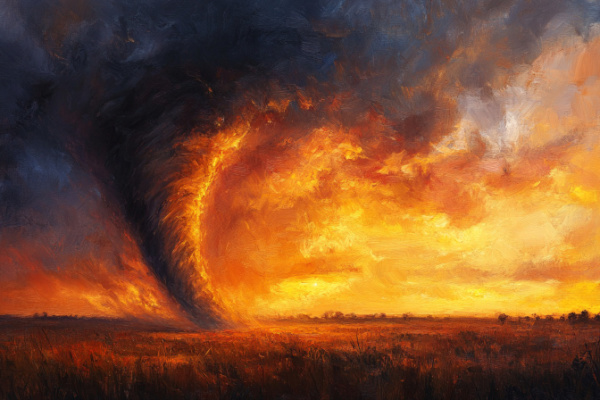Question
Gramps,
What calamities and disasters will we have to face in the last days?
Pam
Answer
Pam,
In a world increasingly marked by natural disasters, social unrest, and global pandemics, many individuals are left wondering: are these calamities the signs foretold by ancient and modern prophets? The question is particularly poignant for members of The Church of Jesus Christ of Latter-day Saints, who have been taught to prepare for the Second Coming of Jesus Christ and the associated tribulations.
The Family Proclamation, issued by The Church of Jesus Christ of Latter-day Saints in 1995, warns of the disintegration of the family and its consequences. It states, “The disintegration of the family will bring upon individuals, communities, and nations the calamities foretold by ancient and modern prophets.” This proclamation serves as a modern-day warning, echoing the sentiments found in scriptural texts that speak of wars, famines, pestilences, and natural disasters as signs of the last days.
In the New Testament, Jesus prophesied that “nation shall rise against nation, and kingdom against kingdom: And great earthquakes shall be in divers places, and famines, and pestilences” (Luke 21:10-11). Many have interpreted these prophecies as indicators of the tumultuous times preceding the Second Coming. However, the interpretation of these calamities is often vague and symbolic, leading to various interpretations among believers.
The calamities mentioned in prophetic texts can manifest in numerous ways, including natural disasters, social upheaval, and personal crises. For instance, Tad R. Callister, an emeritus General Authority Seventy, has linked various social ills and disasters to a failure to uphold family values, suggesting that these issues are symptoms of a broader societal decline. This perspective emphasizes the interconnectedness of individual actions and societal outcomes, suggesting that the moral fabric of society plays a crucial role in calamities.
Moreover, the Church has generally refrained from attributing specific disasters to divine judgment, instead encouraging members to focus on personal preparedness and spiritual resilience. This approach aligns with the teachings of modern prophets, who emphasize the importance of living righteously and being prepared for any eventuality.
In recent years, the world has witnessed a series of unprecedented events, including the COVID-19 pandemic, natural disasters, and civil unrest. These occurrences have led many to question whether they are indeed the calamities foretold in scripture. The pandemic, for instance, has been described as a “desolating scourge” that has affected millions globally, prompting discussions about its potential prophetic significance.
While some may view these events as signs of the impending Second Coming, it is essential to approach such interpretations with caution. The scriptures indicate that “the day of the Lord will come as a thief in the night” (2 Peter 3:10), suggesting that the timing and nature of these events may not be as clear-cut as some might hope. The ambiguity surrounding these calamities serves as a reminder of the need for spiritual preparedness and resilience in the face of uncertainty.
The Church has consistently emphasized the importance of personal preparedness. This includes not only physical preparedness, such as food storage and emergency supplies, but also spiritual readiness. As Elder James J. Hamula stated, “There is no more essential preparation for the great day of the Lord than heeding [the Savior’s] call to repent and be sanctified.” This call to action underscores the need for individuals to cultivate a strong spiritual foundation, enabling them to navigate the challenges that may arise.
The Church’s emphasis on preparedness is not merely a response to current events but a long-standing principle rooted in scripture. Members are encouraged to establish a culture of preparedness, ensuring that they are equipped to face both temporal and spiritual challenges. This proactive approach can help alleviate fear and anxiety, allowing individuals to focus on serving others and building a strong community.
While the signs may be present, the interpretation of these events is often subjective and influenced by individual beliefs and experiences.
Gramps






